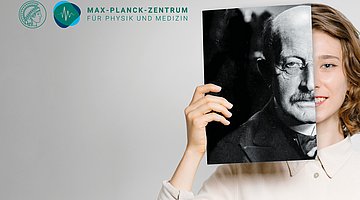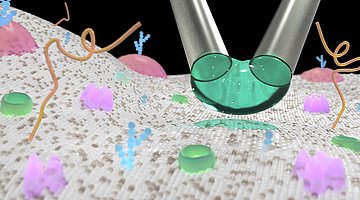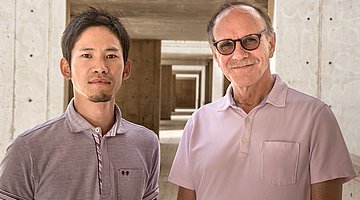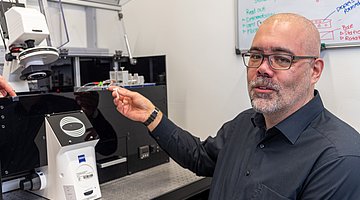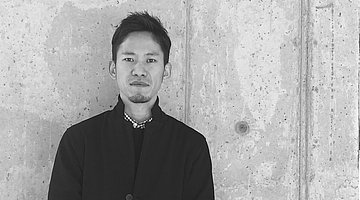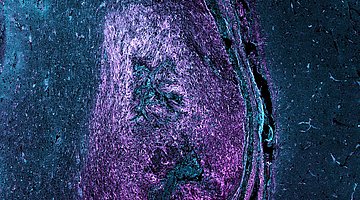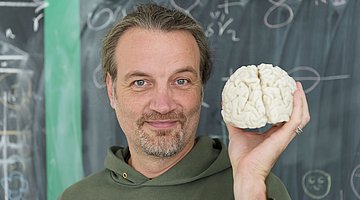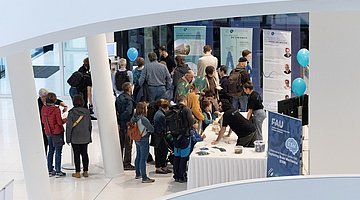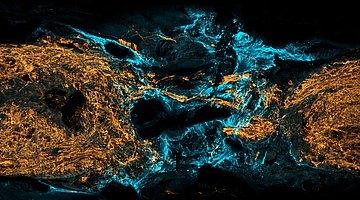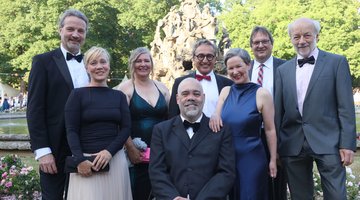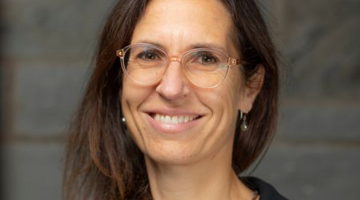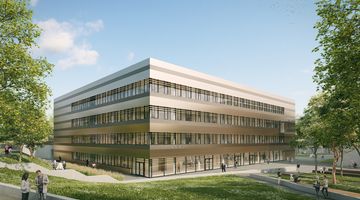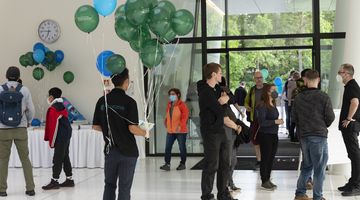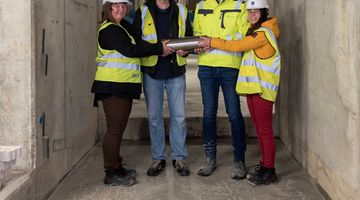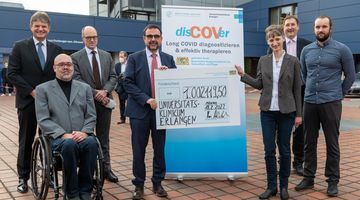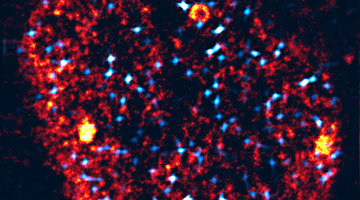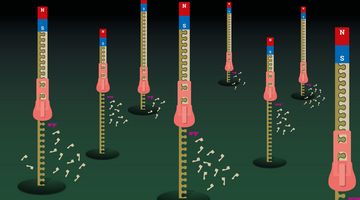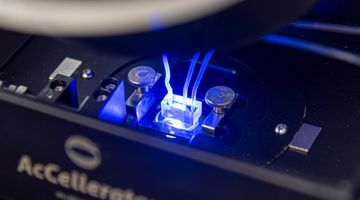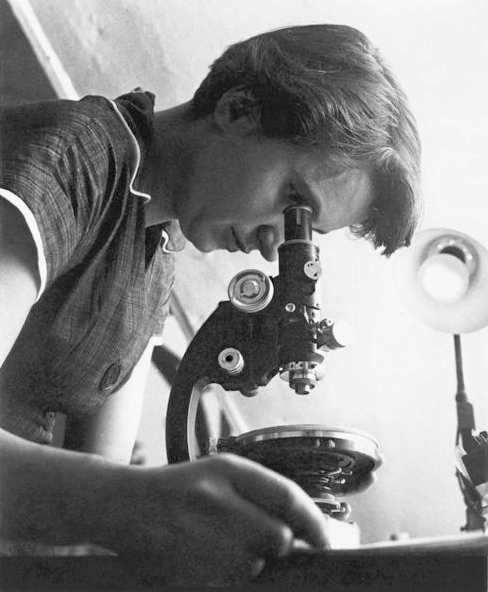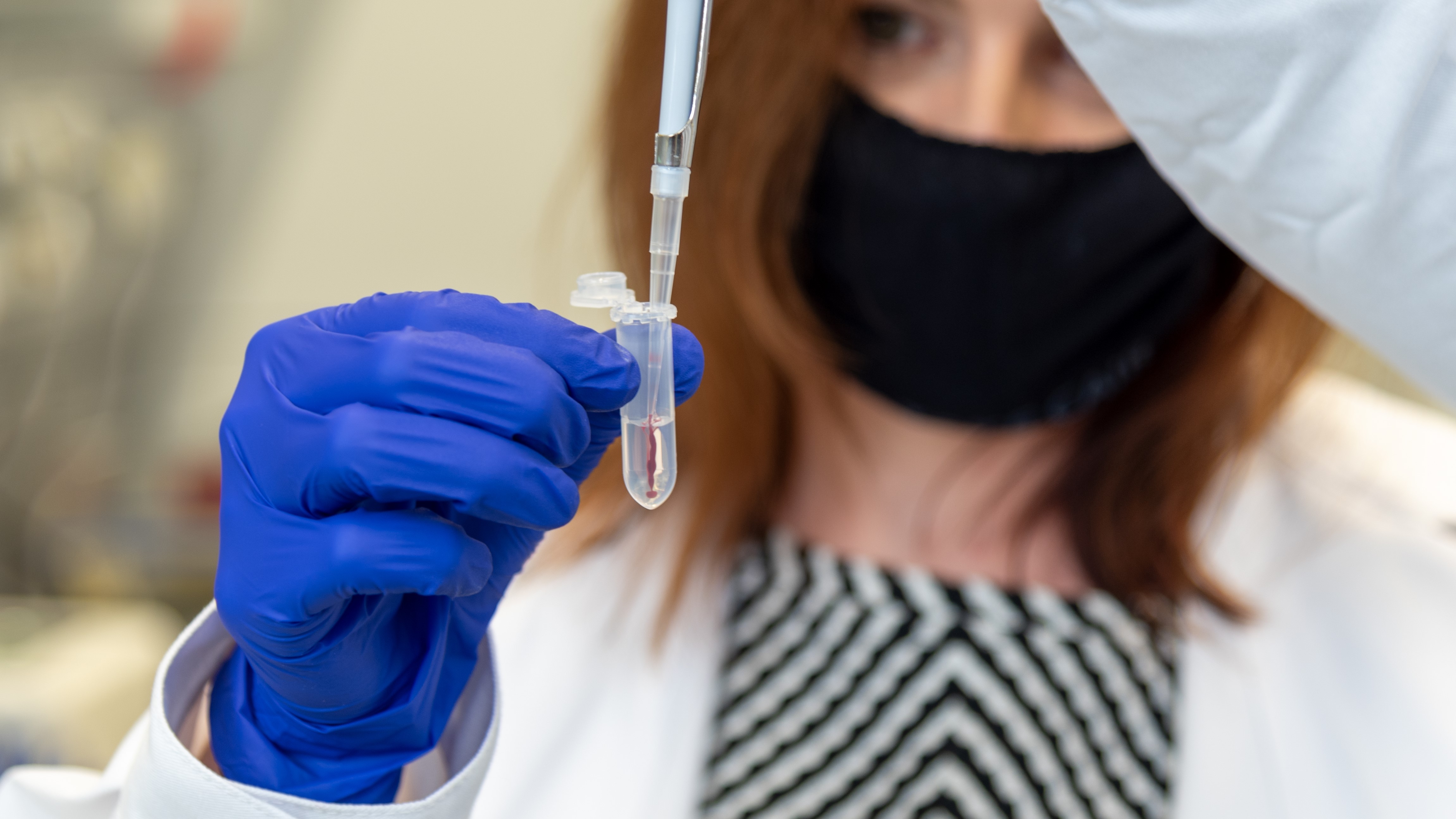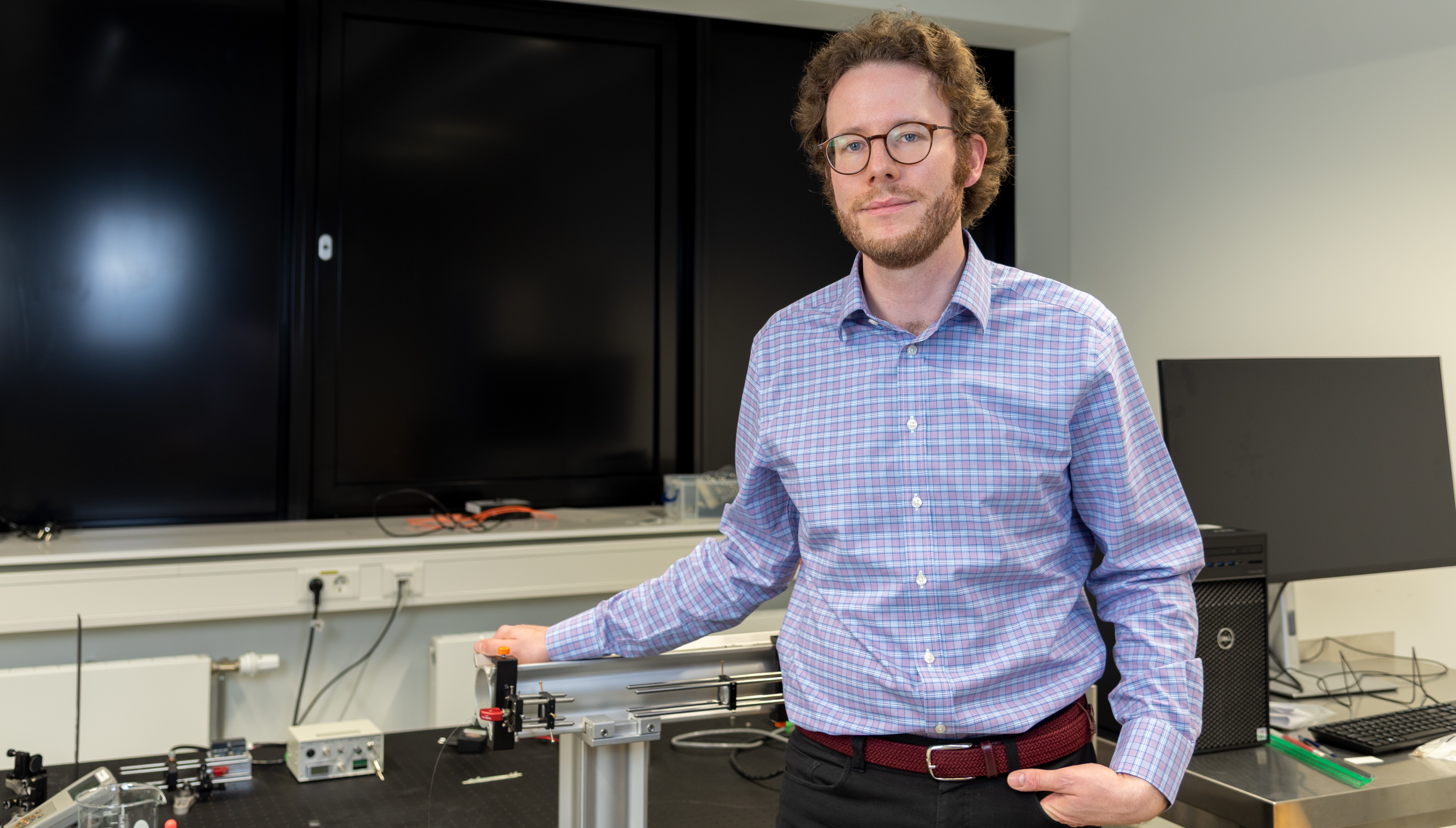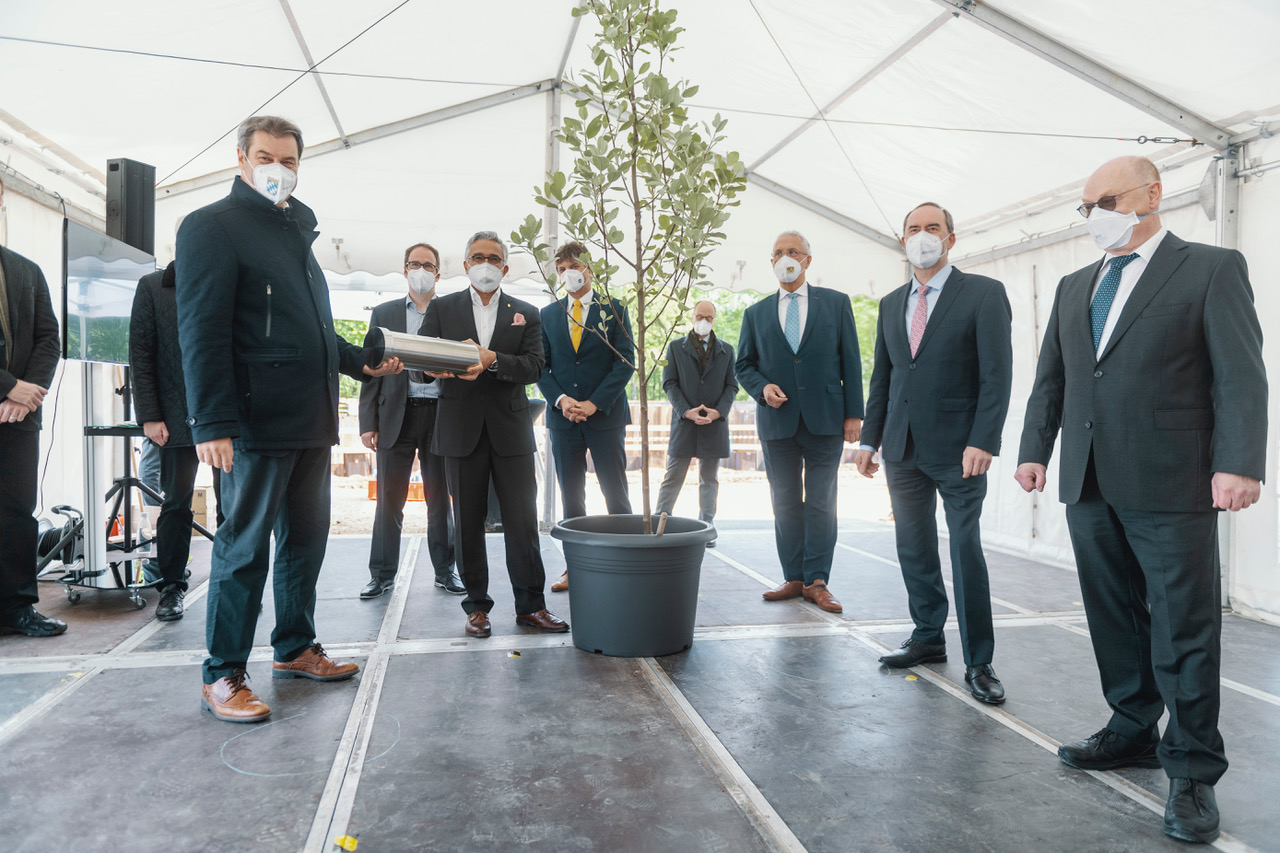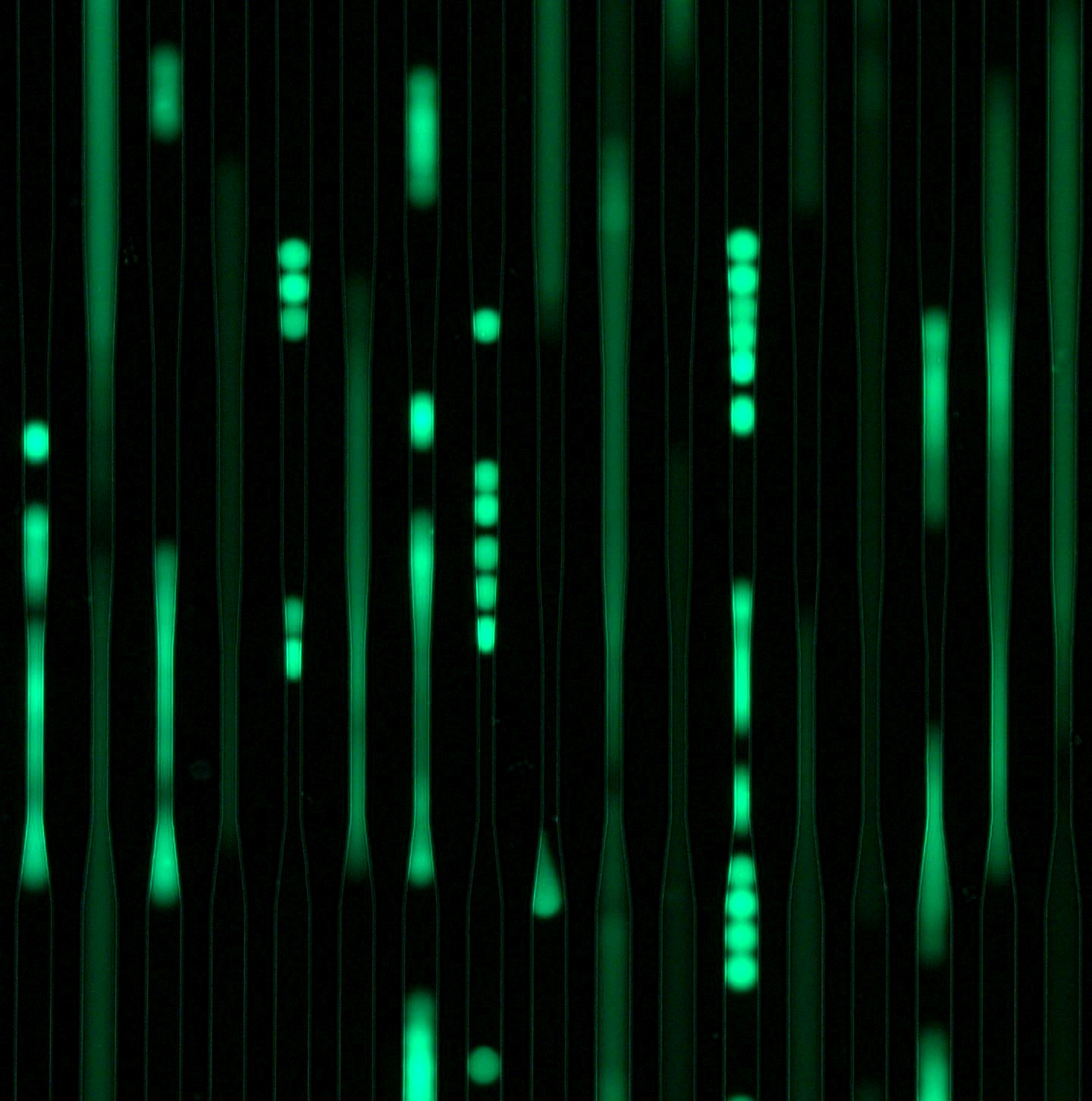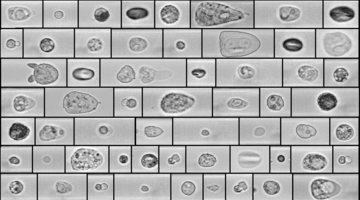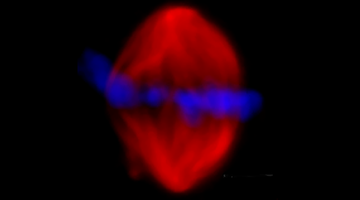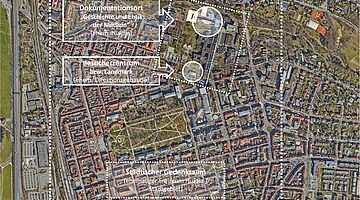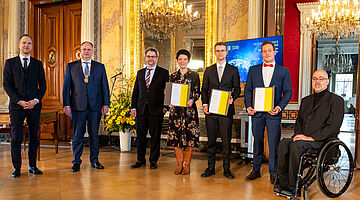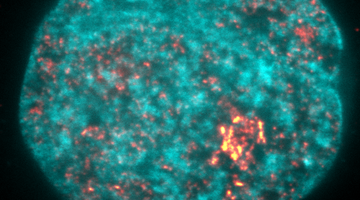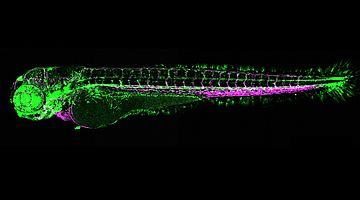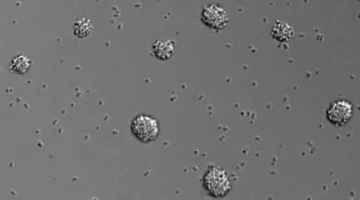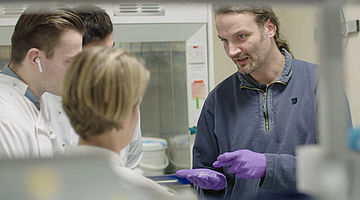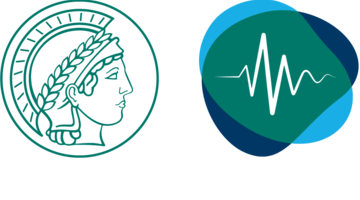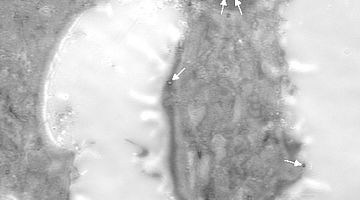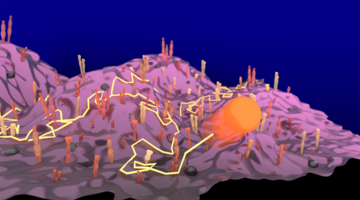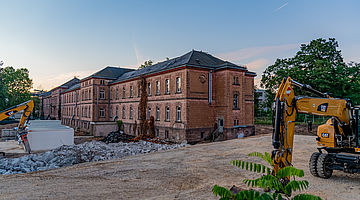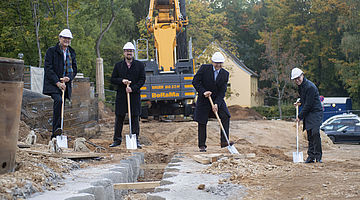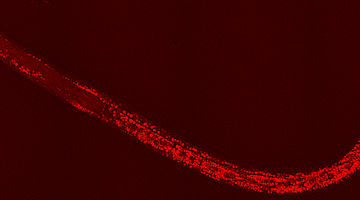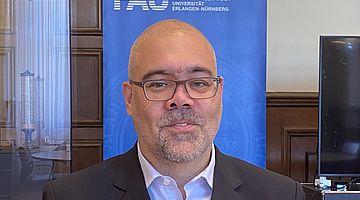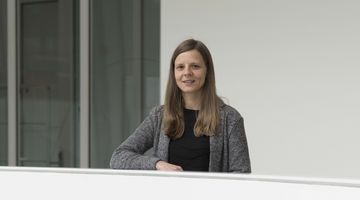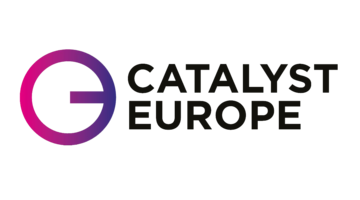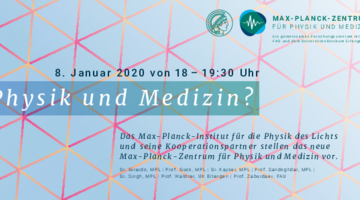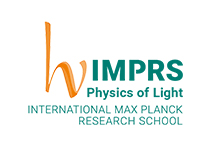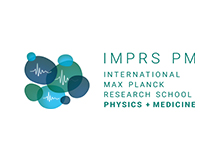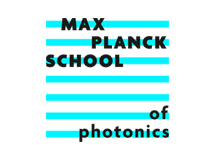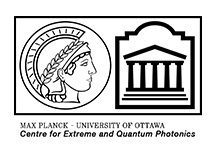December
November
October
September
August
July
From an idea to an application: Nano Innovation Award for MPL doctoral student Cornelia Holler
The Center for NanoScience (CeNS) at the Ludwigs-Maximilian-Universität in Munich (LMU) has honored Cornelia Holler, PhD student at the Max Planck…
Physicist Markéta Icha Kubánková awarded Hermann Neuhaus Prize
The Max Planck Society (MPS) has awarded the Hermann Neuhaus Prize to Markéta Icha Kubánková, a postdoctoral researcher at the Max Planck Institute…
June
"What is a physicist doing in biology and medicine?" – Jochen Guck gives the opening speech at the annual meeting of the Alexander von Humboldt Foundation
On June 27th and 28th, the annual meeting of the Alexander von Humboldt Foundation will take place. Professor Jochen Guck, Director at the Max Planck…
May
With Benoit Ladoux, the Max-Planck-Zentrum für Physik und Medizin wins an additional Humbold-Professor and expands the scope of its research
How cells perceive physical changes in their environment, process this information and react accordingly remains largely unexplored. Since May,…
April
March
Apply now for a Max Planck Research Group Leader at the interface between physics and medical research
The newly established Max-Planck-Zentrum für Physik und Medizin (MPZPM) in Erlangen, Germany welcomes applications for the position of a Research…
February
µkiss-and-tell: A new method for precision delivery of nanoparticles and small molecules to individual cells
The delivery of experimental materials to individual cells with exactness and exclusivity has long been an elusive and much sought-after ability in…
Previously ignored DNA sequence plays important role in brain development
An international research team has uncovered that a previously overlooked repetitive DNA element known as Long Interspersed Nuclear Element (L1) helps…
January
December
November
German Society for Cell Biology and ZEISS award Carl Zeiss Lecture 2023 to Professor Dr. Jochen Guck
Lecture and award ceremony in a public webinar on 29 November 2023
The German Society of Cell Biology (DGZ) and ZEISS have honoured Professor Dr.…
Another ERC grant for brain research goes to Professor Tomohisa Toda in Erlangen
Tomohisa Toda, Professor of Neural Epigenomics at Friedrich-Alexander-Universität Erlangen-Nürnberg (FAU) has been awarded another European Research…
Deciphering the secrets of spinal cord regeneration protein by protein
Scientists have long sought to understand how certain animals, such as zebrafish, are able to regrow nerve fibers and regain lost motor function after…
October
Unravelling the secrets of brain folding: UNFOLD research project at Max-Planck-Zentrum für Physik und Medizin receives prestigious ERC Synergy Grant
Physicist and veterinarian Prof. Dr. Kristian Franze, Research Group Leader at the Max-Planck-Zentrum für Physik und Medizin (MPZPM) and Director of…
Special exhibition for the Max-Planck-Zentrum für Physik und Medizin at the Long Night of Science
During this year's Long Night of Science, the Max-Planck-Zentrum für Physik und Medizin (MPZPM) presented itself with a significant special…
September
August
New Research Funding for Spinal Cord Regeneration
Zebrafish are capable of regenerating their spinal cord. The German Research Foundation (Deutsche Forschungsgemeinschaft) is now providing 250,000€ to…
July
June
„We can also be festive” – Max Planck Directors in a celebratory mood at the Schlossgarten Fest
This weekend, the scientific world of quantum communication, nano-optics, biological optomechanics and medical physics had to do without the expertise…
May
April
March
Little noticed, but of enormous influence: Tissue mechanics affect the growth and metastasis of cancer
The first awardee of the Rosalind Franklin Scientist-in-Residence (RFSR) Program of the Max-Planck-Zentrum für Physik und Medizin (MPZPM), Claudia…
February
What is physics doing in medicine? - Presentation of the new Max-Planck-Zentrum
Why is it a good idea for physicists to work on medical issues? Prof. Dr. Jochen Guck, Director of the Max Planck Institute for the Science of Light…
January
December
November
October
September
August
July
June
May
A look back at the Long Night of Science
As part of the largest science festival in the region, MPL also opened its doors to the general public. More than 1,000 interested people visited the…
April
March
"My fingers are itching, I would love to start next week." Time capsule embedded at the Max Planck Center for Physics and Medicine
The next step in the construction of a special large-scale project has been taken: after the foundation stone was laid in 2021, employees of the…
February
Bavarian Health Minister promotes innovative project on Long Covid with more than one million euros
During a visit to the Universitätsklinikum Erlangen, Minister Klaus Holetschek handed over the funding notification for the project "disCOVer…
January
December
November
How cells specifically activate genes
It is essential for cells to control precisely which of the many genes of their genetic material they use. This is done in so-called transcription…
October
Corona: Using magnetic tweezers to track down new antiviral drugs against Covid-19
How can SARS-CoV-2 be stopped? David Dulin and his team at the Max-Planck-Zentrum für Physik und Medizin in Erlangen have investigated how the virus…
September
Federal Ministry of Research funds drug trial against Long COVID in Erlangen
The BMBF is providing 1.2 million Euros for the reCOVer project. This will enable a research team from the Max-Planck-Zentrum für Physik und Medizin…
August
Health Minister Klaus Holetschek looks into Long Covid research at the MPL
The Bavarian Minister of State for Health and Care was impressed by the great potential of real-time deformability cytometry for the diagnosis of…
July
June
New scholarship of MPZPM for outstanding scientists
In memory of the pioneering English chemist Rosalind Franklin, the Max-Planck-Zentrum für Physik und Medizin has set up a scientist-in-residence…
How a corona infection changes blood cells in the long run
Using real-time deformability cytometry, researchers at the Max-Planck-Zentrum für Physik und Medizin in Erlangen were able to show for the first…
Horizon Award for Leonhard Möckl
The British Royal Society of Chemistry has awarded a research team for their work on the protective sugar coat of cells, which included the scientist…
May
„Ecosystem for Ideas and Creativity”: Laying of the foundation stone for the new Max-Planck-Zentrum für Physik und Medizin
Construction phase of the innovative, interdisciplinary research institute in Erlangen begins. Minister-President and Minister of Economic Affairs…
Efficiently smuggling drugs into cells
A new, patented method called Progressive Mechanoporation makes it possible to mechanically disrupt the membranes of cells for a short time period and…
April
Emmy Noether Group for Jona Kayser
Millions for cancer research: Jona Kayser, junior group leader in the Biological Optomechanics Division at the Max Planck Institute for the Science of…
Fast and efficient diagnoses through artificial intelligence
The mechanical properties of cells can reveal which diseases a patient is suffering from. Researchers at the Max-Planck-Zentrum für Physik und Medizin…
With new technology, researchers can look deep into the interior of cells – in 3-D
Tracking the mystery of cell division: Scientists of the IRI Life Sciences of Humboldt University and the Max Planck Institute for the Science of…
March
Launch of the Forum Erinnerungs- und Zukunftsort Heil- und Pflegeanstalt Erlangen
During National Socialism in Germany, crimes against humanity, especially medical crimes, also occurred in Erlangen. In order to commemorate the…
Dresden Excellence Award for Maik Herbig
The city of Dresden awarded Maik Herbig, former PhD student of MPL Director Jochen Guck, the Dresden Excellence Award 2020 for his doctorate. The…
Organizing genetic material into pockets
International research team identifies how the cell nucleus structures active and inactive DNA - and thus controls the development of a cell.
All…
February
January
When severed spinal cord grows back together again
After an injury to the spinal cord, patients often remain paralysed because damaged nerve tracts do not regrow due to the formation of scar tissue.…
New mathematical model: How dangerous bacteria form colonies
Disease-causing microbes as well as cancer cells gang together to form larger structures - and only then become dangerous to humans. Scientists at the…
December
November
October
September
August
July
Kristian Franze Appointed New Director at MPZPM
On August 1, Kristian Franze will become one of the directors of the Max-Planck-Zentrum für Physik und Medizin (MPZPM) - at the same time he will…
Wissenschaftlicher Pioniergeist in Erlangen: Forschung am MPZPM hat bereits begonnen – Blutdiagnosen werden schneller und differenzierter
Auch wenn der Bau des Max-Planck-Zentrum für Physik und Medizin (MPZPM) erst in vier Jahren abgeschlossen ist, wird schon jetzt interdisziplinär…
June
May
Construction work for the Max-Planck-Zentrum für Physik und Medizin starts
The construction work for the new Max-Planck-Zentrum für Physik und Medizin (MPZPM) will start: The construction site at the Schwabachanlage in…
Max Planck researchers develop the "ultimate cell sorter"
By combining imaging of deformed cells and artificial intelligence, researchers at the Max Planck Institute for the Science of Light and the…
The coronascope on television
Recently, a film team of the Bayerischer Rundfunk (Bavarian broadcasting organisation) visited the Max Planck Institute for the Science of Light: The…
April
The Coronascope – Scientists at Max-Planck-Zentrum für Physik und Medizin observe an infection with Sars-CoV-2 live
A kind of video surveillance could contribute to getting an insight into the life cycle of the coronavirus: Researchers at Max Planck Institute for…
Following a protein nano-rover on the cell membrane
The human body is composed of billions of cells, each one representing the smallest self-sustaining unit of life. We know that surfaces of our cells…
March
February
January
December
November
October
Partial demolition of the HuPfla starts
With construction companies having finished securing the so-called Mittelrisalit - the protruding central part of the building - demolition work on…
Symbolic ground-breaking ceremony for the new Max-Planck-Zentrum für Physik und Medizin in Erlangen
First Mayor Florian Janik and representatives of University Hospital, University, and Max Planck Institute emphasise the importance for the research…
September
Alcohol prolongs lifespan of nematodes
Organisms often react to extreme environmental conditions with defence mechanisms which allow them to survive. Understanding these mechanisms may lead…
August
July
Jochen Guck appointed FAU professor
Jochen Guck, Director of the Division Biological Optomechanics, was appointed professor at the Friedrich-Alexander-Universität Erlangen-Nürnberg…
June
May
April
March
Katja Zieske heads new research group
As of February 2020 Katja Zieske joined the Max Planck Institute for the Science of Light to set up her laboratory. Starting in May she will head a…
February
January
Catalyst Europe: Applications are open now
Catalyst Europe, a new programme open to postdocs, doctoral candidates (from any technological field related to health) and clinicians, funded by EIT…
Let's go! Work starts for the new Max-Planck-Zentrum für Physik und Medizin
The first steps to build the Max-Planck-Zentrum für Physik und Medizin will start in the following week. Here you can find more informations about the…
Physik und Medizin
Das Max-Planck-Institut für die Physik des Lichts und seine Kooperationspartner stellen das neue Max-Planck-Zentrum für Physik und Medizin vor.…
Upcoming Events
OPTICAL PHYSICS MEETS MEDICINE
Scientific Symposium on July 30 and 31 Fundamental research in interdisciplinary physics for new stimuli in medicine [...]
MoreGrand Opening Symposium 2024 | Max-Planck-Zentrum für Physik und Medizin
GRAND OPENING SYMPOSIUM on the occasion of the new Max-Planck-Zentrum für Physik und Medizin in Erlangen 18-19 September 2024. [...]
MorePast Events
© Max Planck Institute for the Science of Light
Data Collection
This website uses cookies to ensure you get the best experience on our website.





